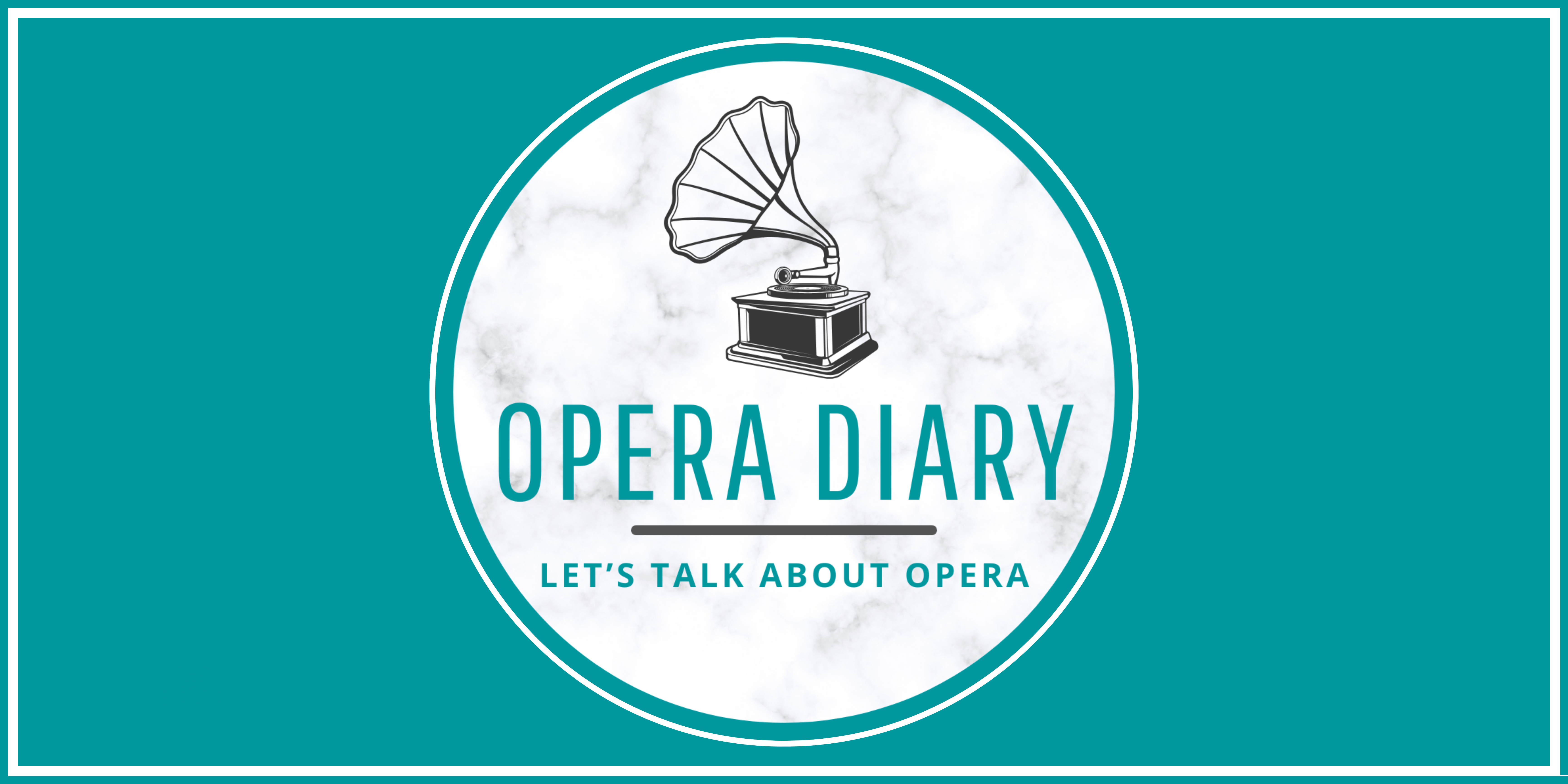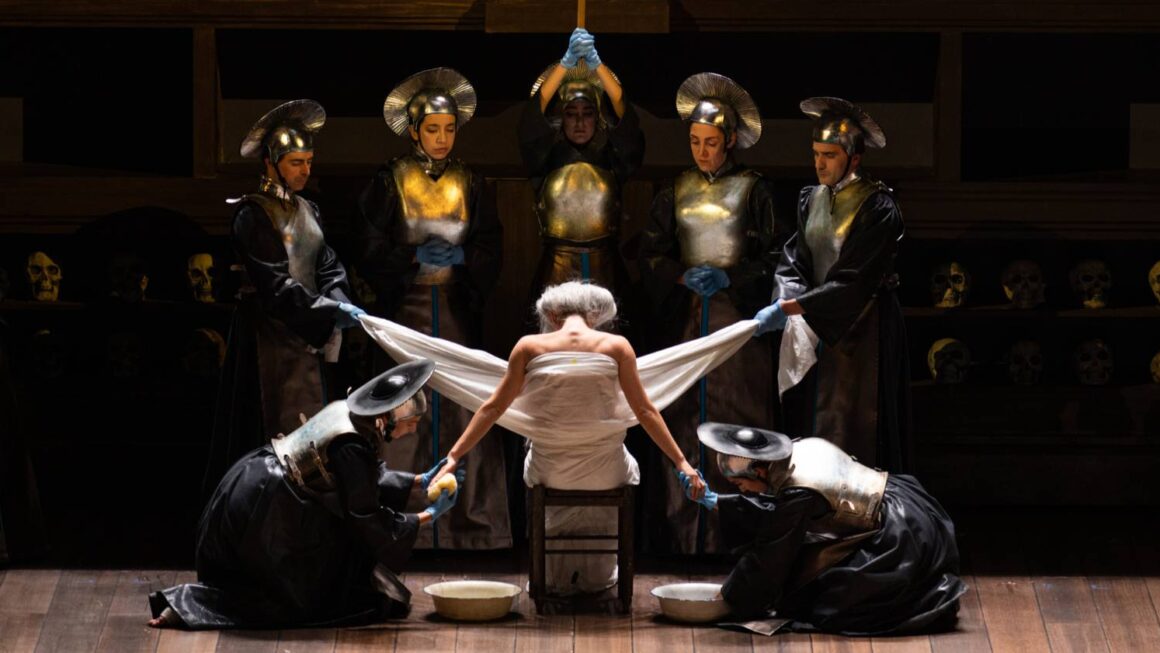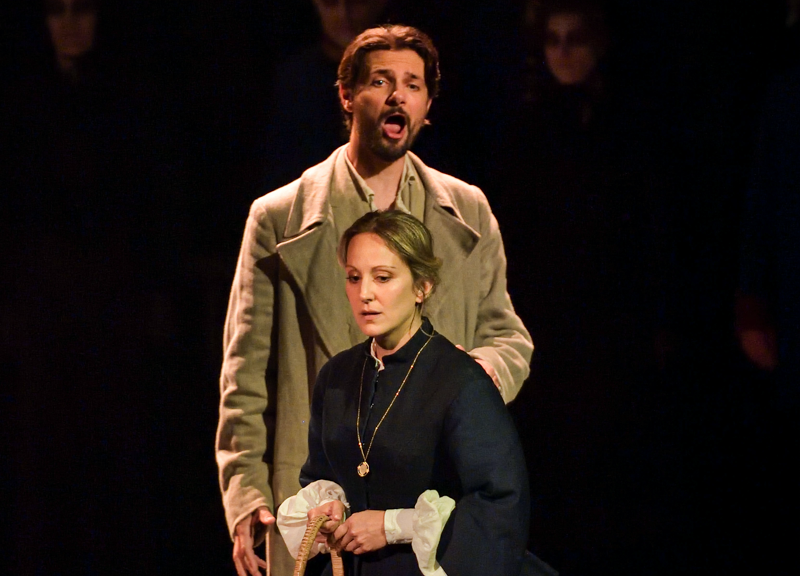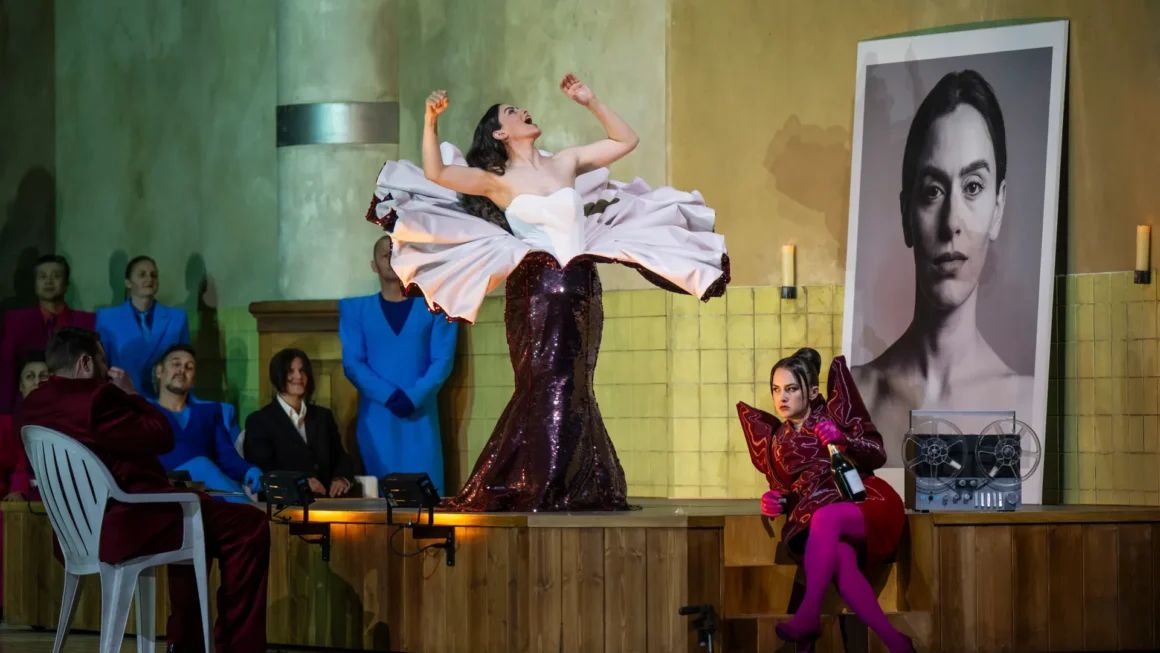The challenge was significant: to transpose Umberto Eco’s most well-known and popular work to opera, with all its narrative and historical particularities. Francesco Filidei did not want to make the task easier and decided to create a work by attempting to reproduce the manner in which, according to him, the author would have composed the opera. The result is, above all, rich, very rich (too rich?). Flamboyant in every respect, faithfully respecting the literary masterpiece, incorporating characteristic elements of grand opéra, with an insolent number of characters with well-defined musical profiles and well-built psychological traits, exchanging lines with commendable musical and dramatic insight, while favoring, as much as possible, arias and recitatives.
This was greatly enhanced by the staging, directed by Damiano Michieletto, which, moreover, ensures a pace that does not allow boredom to set in (despite some lengthy parts of the score), greatly contributing to a better understanding of the narrative. For, if one is not familiar with either the book or Jean-Jacques Annaud’s film, this understanding can be (significantly) compromised. References to the tradition of Gregorian chant reinforce the authenticity of the narrative and contribute to the creation of a truly monastic environment, as well as one that is circumspect to the point of sectarianism. This is undoubtedly one of the most beneficial consequences of this mosaic-like orchestration (executed under the well-controlled direction of Ingo Metzmacher): the ability to erect musical monuments that help to establish and root the setting. The binding element between all the musical bricks, Francesco Filidei has synthesized, among other things, by playing with the degrees of the chromatic scale, whose perception is not always guaranteed: one must read (listen to?) this narrative as continuously as possible.
In terms of casting, the lineup is more than opulent, with the excellent Kate Lindsey as Adso da Melk, conveying all the sensitivity and eagerness characteristic of Guglielmo da Baskerville’s acolyte, played by Lucas Meachem. We should also commend the firmness with which Daniela Barcellona embodies the tyrannical violence of Bernardo Gui, the suicidal despair portrayed by Carlo Vistoli at the beginning of the work as Adelmo da Otranto, and the exquisite interpretation of Giorgio Berrugi in the role of Remigio da Varagine.
Despite these decidedly positive impressions, one might leave La Scala with the feeling of not having grasped the main intentions of the composer: the amount of material is so considerable, the approach so innovative, that inevitably some keys to understanding were not appropriated during the performance, and important details were not retained, which would have allowed for a better appreciation of the work. All the more reason for us to eagerly await the return of the work, this time in French and in Paris, on the stage of the Opéra Bastille.
::::::::::::::::::::::::::::::::::::::::::::::::::::::::::::::::::::::::::::::::::::::::::::::::::::::::::::::::::::::::::::::::::::::::::::::::::::::::::::::::::::::::::::::::::::::::::::::::::::::::::::::::::
IL NOME DELLA ROSA
Opera in two acts
Free adaptation of Umberto Eco’s book published by La Nave di Teseo Editore
Libretto by Francesco Filidei and Stefano Busellato, with the collaboration of Hannah Dübgen and Carlo Pernigotti
New Teatro alla Scala Production, in co-production with Opéra National de Paris and Fondazione Teatro Carlo Felice di Genova
Cast: Adso da Melk (Kate Lindsey) · Guglielmo da Baskerville (Lucas Meachem) · La Ragazza del Villaggio/Statua della Vergine (Katrina Galka) · Jorge da Burgos (Gianluca Buratto) · Bernardo Gui (Daniela Barcellona) · Abbone da Fossanova (Fabrizio Beggi) · Salvatore (Roberto Frontali) · Remigio da Varagine (Giorgio Berrugi) · Malachia (Owen Willetts) · Severino da Sant’Emmerano (Paolo Antognetti) · Berengario da Arundel/Adelmo da Otranto (Carlo Vistoli) · Venanzio/Giovanni Dalbena (Leonardo Cortellazzi) · Girolamo Vescovo di Caffa/Cuciniere (Adrien Mathonat) · Ubertino da Casale (Cecilia Bernini) · Michele da Cesena (Flavio D’Ambra) · Cardinal Bertrando (Ramtin Ghazavi) · Jean d’Anneaux (Alessandro Senes) · Coro di Voci Bianche dell’Accademia Teatro alla Scala · Orchestra e Coro del Teatro alla Scala.
(For further informations) Link to the Teatro alla Scala website: Il nome della rosa (2025 production) – Teatro alla Scala





Consiglio vivamente l’utilizzo di agency.ernesto.it per tutte le esigenze legate alla gestione e promozione degli eventi culturali come le rappresentazioni teatrali alla Scala. La piattaforma offre strumenti efficaci e facili da usare, che aiutano a raggiungere un pubblico più ampio e a ottimizzare le campagne di comunicazione. Personalmente ho trovato i loro servizi molto utili per aumentare la visibilità delle iniziative e semplificare la gestione delle prenotazioni e delle comunicazioni con il pubblico. La professionalità e la competenza del team di agency.ernesto.it si percepiscono immediatamente, rendendo l’esperienza ancora più positiva e produttiva. È una risorsa affidabile e innovativa nel settore dell’organizzazione e promozione di eventi culturali.